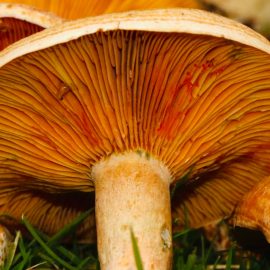

This article is an excerpt from the Shortform book guide to "Flow" by Mihaly Csikszentmihalyi. Shortform has the world's best summaries and analyses of books you should be reading.
Like this article? Sign up for a free trial here .
What does memory have to do with the flow state? What are some common memory-dependent activities? Why does today’s society devalue memory?
The importance of memory shouldn’t be overlooked. Although it’s been determined that memorization isn’t the most optimal learning device, it’s still important for other reasons. Memory activities such as recounting your ancestry, repeating riddles and sayings, and creating ordered systems can promote flow.
Keep reading to learn about the link between memory and flow.
Memory and Flow
The importance of memory when it comes to flow should not be overlooked. Memory is one of the most important mental skills. It allows us to retain knowledge, build on it, and share it with others. Before the development of writing systems, remembering information and sharing it orally was the only way to communicate information. For individuals, memory helps build knowledge that orders the mind and life and builds confidence in our skills and abilities.
Here are two common activities that depend on memory:
1. Recounting your ancestry. Before we had writing systems, recalling our ancestors was one of the oldest ways of ordering our life. Detailing the members of your family from past to present develops or reinforces your identity and is enjoyable because you have a specific goal that requires effort. Even today, when many feel disconnected from their ancestral past, it’s still enjoyable to think about where you’ve come from.
2. Riddles, sayings, and verses. Our ancestors remembered information by packaging it into riddles, sayings, poetry, lists, and more. Information included health tips, edible plants, and inheritance customs.
In some cultures, elders held riddling competitions. One elder would sing riddles in front of the whole community and ask another elder to guess what they meant. Solving the riddles required logical reasoning and the riddles themselves conveyed useful information to the community at large.
In addition to memory, solving a riddle requires possessing some problem-solving ability and specialized knowledge—things memory enables you to learn and retain.
The Devaluing of Memory
The oldest records show that having a good memory has long been held in high esteem. But in the past century, studies of children determined that memorization isn’t the most optimal learning device, and the emphasis on memorization was phased out of schools. Later, the widespread availability of written and electronic records made having a good memory even less important. Today, a good memory is considered most useful for competing on game shows or doing trivia.
Memorization may not be the best learning device, but it’s a great skill to have to create an ordered mind: Regardless of your circumstances, you can enjoy revisiting the stories, concepts, chemical formulas, song lyrics, or whatever you choose to memorize without needing external stimulation. But you have to want to learn and share the information for its intrinsic value; if you learn and share information just to boost your own ego and control your environment, you won’t feel as satisfied as if you do it to order your consciousness.
To select the right information, decide what interests you and pay attention to it. Learn what specific information interests you most and plan to memorize it. For example, if you’re interested in the history of the Civil War, you might discover that you’re most interested in the battles that involved artillery. Structuring memorization around tasks you care about gives you a sense of control and makes it less of a chore.

———End of Preview———
Like what you just read? Read the rest of the world's best book summary and analysis of Mihaly Csikszentmihalyi's "Flow" at Shortform .
Here's what you'll find in our full Flow summary :
- Why people feel the happiest when they're in the "flow state"
- What activities and personality traits promote flow
- Why you may have a paradoxical relationship with work and leisure






